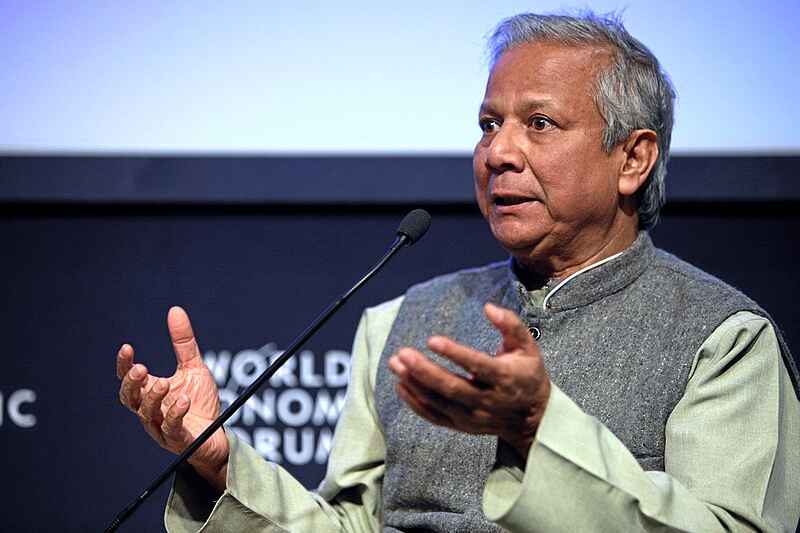
Yunus Calls for Comprehensive Reforms Amid Bangladesh’s Political Upheaval
Muhammad Yunus, a Nobel laureate, has taken the helm in Bangladesh’s interim government during a time of significant political upheaval. His rise to leadership follows widespread protests and violence that led to the removal of Sheikh Hasina from power.
In a crucial address to diplomats in Dhaka on Sunday, Yunus, now serving as the Chief Adviser, emphasized the need for comprehensive reforms before the next general elections can be held. This marked his first official interaction with the international community since assuming office on August 8, after former Prime Minister Sheikh Hasina’s resignation.
Yunus outlined his vision for a stable and democratic Bangladesh, with the interim government focusing on a free, fair, and inclusive election process. He emphasized that significant reforms in key areas such as the election commission, judiciary, civil administration, security forces, and media must be completed before any elections are conducted.
“We are committed to holding a free, fair, and participatory election, but only after we have fulfilled our mandate to implement crucial reforms,” Yunus stated to the diplomats, including India’s High Commissioner to Bangladesh, Pranay Verma.
Restoring Order and Stability
The political landscape in Bangladesh has been tumultuous. On August 5, Sheikh Hasina, aged 76, fled the country by helicopter to India as protests engulfed the streets of Dhaka. Her 15-year rule, marked by allegations of human rights violations, came to a dramatic end, with over 450 people losing their lives during the unrest. The Hindu minority community in Bangladesh also faced targeted attacks during this period.
Yunus emphasized that restoring law and order is the interim government’s top priority. “We aim to return to normalcy swiftly, with the full support of our people and the dedication of our patriotic armed forces,” Yunus assured. He reiterated that the armed forces would continue to assist in maintaining civil order as long as necessary.
Beyond political reforms, Yunus addressed the urgent need for economic recovery. He criticized Hasina’s regime, describing it as a “brutal dictatorship” responsible for widespread corruption and economic mismanagement.
“Our government is committed to implementing deep economic reforms to restore macroeconomic stability and foster sustainable growth,” Yunus said. He accused Sheikh Hasina of systematically dismantling the country’s institutions during her tenure, leading to rigged elections and the suppression of democratic rights.
Yunus referred to the recent mass protests as a “Second Revolution,” led by students and ordinary citizens determined to reclaim their democratic rights.
Yunus called on the international community to support Bangladesh in its journey toward a fully functional democracy. He assured diplomats that Bangladesh would continue to champion multilateralism, with the United Nations playing a central role in its foreign policy.
Protests in Bangladesh: Death Toll Climbs, Curfew Imposed Nationwide
“We trust that our friends and partners in the international community will stand by us as we embark on this new democratic path,” Yunus said. He stressed the importance of fulfilling the aspirations of Bangladesh’s citizens, particularly the youth, who played a pivotal role in the recent uprising.
Yunus also welcomed the United Nations’ decision to send a fact-finding mission to investigate the recent violence, pledging full cooperation with the international inquiry.
“Bangladesh stands at the crossroads of a new beginning. Our courageous students and citizens deserve a lasting transformation of our nation. This journey is challenging, and we need your support every step of the way. The sooner we achieve this, the better,” Yunus concluded.



